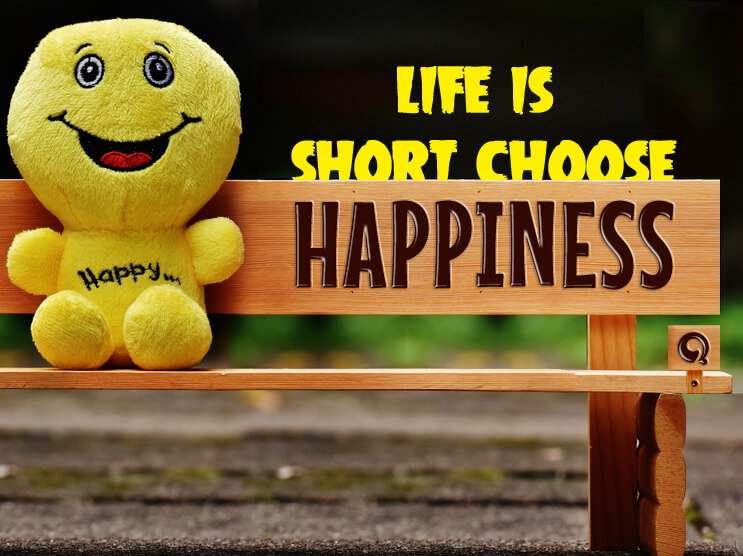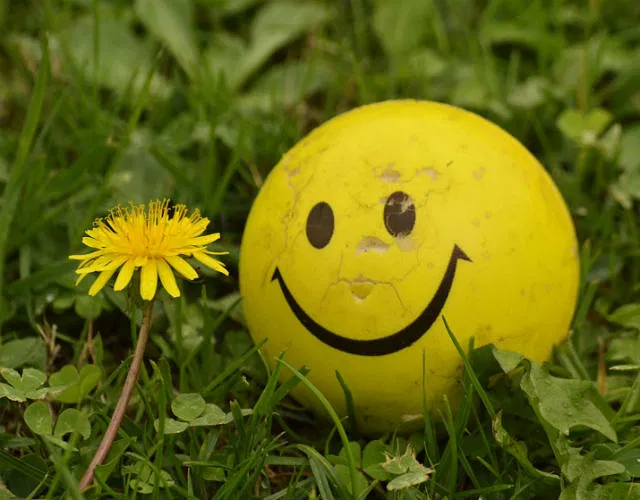What Is True Happiness?
True happiness is a deeply personal concept — different for everyone.
For some, it’s found in achieving great success or wealth, while for others, it’s about fulfillment and peace of mind. In any case, true happiness is more than just feeling good; it’s having satisfaction with life as a whole. For many, achieving true happiness is the ultimate goal in life.
Although it’s ultimately up to you to decide what true happiness means to you and how best to pursue it, there are some common ways of trying to achieve this life satisfaction. These include developing meaningful relationships, taking care of physical and mental health, finding a purpose and passion, embracing change and growth, and focusing on the present moment.
So, what is true happiness? It’s a combination of deep satisfaction and contentment with your life and a feeling of joy that comes from pursuing the things which bring meaning to you. Taking steps to cultivate this state of being can bring a greater sense of peace and fulfillment.

Definition of Happiness
Scientifically, happiness is often defined as a combination of positive emotions, such as joy, pleasure, and a feeling mixed with fear or wonder. The American Psychological Association (APA) describes it as “the experience of joy, contentment, or positive well-being, combined with a sense that one’s life is good, meaningful, and worthwhile.”
In common language, happiness is often defined as a feeling of joy or satisfaction with one’s life. It can be thought of as a combination of positive emotions such as contentment, pleasure, and satisfaction that come from reaching goals and accomplishing desired outcomes. It is also linked to feelings of joy, pride, and fulfillment. Ultimately, true happiness is a state of well-being and satisfaction with life overall.
History of Happiness
The concept of happiness has been around since ancient times when it was associated with the good life and virtue. Philosophers from Aristotle to Confucius explored the idea that true happiness comes from living a virtuous and meaningful life. They believed that being in harmony with others and connecting to something greater than oneself were key ingredients for lasting joy.
In modern times, happiness has been studied more extensively by psychologists and researchers. These studies have revealed that although many people strive to achieve financial prosperity as a way of achieving lasting satisfaction, it’s also important to focus on the other aspects of life that bring joy — such as relationships, personal growth, and helping others. Ultimately, true happiness is about finding balance and fulfillment in all areas of life.

Types of Happiness
There are various typologies of happiness, but it is usually divided into two types: hedonia and eudaimonia.
Hedonia is the pursuit of pleasure, often through materialistic means such as wealth, power, or fame. It’s a more short-term approach to happiness that provides immediate gratification but may not lead to long-term satisfaction.
Eudaimonia, on the other hand, is a more holistic approach to happiness that comes from living a meaningful life and striving for excellence in all areas of life. This type of happiness involves being engaged in activities that have purpose and value — such as contributing to society or helping others. It’s often thought of as the pursuit of a “good life” or the ultimate state of well-being.

In addition to hedonia and eudaimonia, there are other typologies of happiness that may be relevant to different individuals. These include:
- spiritual happiness, which involves finding inner peace through a connection with something greater than oneself
- interpersonal happiness, which is about cultivating meaningful relationships
- naturalistic happiness, which involves connecting to the natural world
- physical happiness, which is a focus on health and wellness.
All of these types of happiness can contribute to a sense of well-being if pursued in combination with each other. You have to find your own happiness, there is no standard for that.
Influence of Happiness
Happiness has a profound influence on both physical and mental health. Studies have shown that those who experience positive emotions tend to have better physical health, more resilience when facing stressors, higher levels of self-esteem, and greater overall life satisfaction.
Specifically, happiness has been linked to improved immunity, lower blood pressure, better cardiovascular health, and even a longer lifespan. On the mental side, real happiness can help reduce symptoms of depression and anxiety and lead to greater feelings of contentment.

How to Be a Happier Person
Although happiness is something that everyone strives for, it’s important to remember that it’s not a constant state; it requires regular effort and maintenance.
Here are some tips for fostering lasting joy:
Make time for meaningful activities
Dedicate at least one hour per day to engaging in activities that bring you pure enjoyment, such as reading a book, painting, or taking a walk in nature.

Exercise regularly
Studies have shown that regular physical activity can improve mood and reduce symptoms of depression and anxiety.

Connect with others
Cultivating meaningful relationships is one of the most important keys to happiness. Make time for friends and family or join a club or organization that shares your passions.

Practice gratitude
Take time to appreciate the small things in life — a beautiful sunset, a hug from a loved one, or even a delicious meal. Write down three things you’re grateful for each day and review them when feeling low.

Let go of negative thoughts
It’s easy to get caught up in negative thinking, but it can have a serious impact on our overall happiness. Try mindfulness or meditation practices to help you recognize and reframe negative thoughts.

Invest in yourself
Make time for personal growth and learning new skills — this will not only boost your self-esteem but also increase your sense of purpose.

These are just some tips for how to be a happier person but remember that each individual’s path to joy is unique. It may take time and effort to find what works best for you, but the journey can be incredibly rewarding in the end. With an open mind and a positive attitude, you can make strides toward lasting happiness.

Challenges of Finding Happiness
Finding true happiness can be a difficult journey, especially when faced with the external factors of daily life. It’s important to be mindful of the things that may be holding you back from achieving joy — such as negative thoughts, unhealthy habits, and relationships that don’t support your growth — so that you can take steps to overcome them. Additionally, it can be helpful to find trusted resources like counseling or support groups for advice and guidance on your journey.
It’s also important to remember that finding real happiness won’t always happen overnight. You may have setbacks or moments of doubt, but it is essential to keep pushing forward and focus on the journey instead of on the destination. With dedication and effort, you can find true joy in life.

Valuing the Wrong Things
In the journey of seeking happiness, it is easy to become fixated on certain goals or achievements. We may think that once we have reached a certain milestone, we will be truly content and happy. However, it is important to remember that no amount of material gain or wealth can bring you lasting happiness if your emotional health is not stable.
Too often, people concentrate on the wrong things in their pursuit of joy, such as material possessions or financial success. But if we don’t also take care of our mental and emotional health, these things will never bring us true satisfaction. Taking time to center on your inner self and nurture a positive mindset is essential in order to maintain emotional stability and prevent negative feelings from taking over your life.

Not Seeking Social Support
One of the most common mistakes people make in their pursuit of happiness is not seeking out social support. It can be easy to assume that you should be able to do it all by yourself, but having a strong network of supportive people can often provide much-needed emotional and mental relief. Having someone to talk to or share an experience with can greatly improve your overall well-being and help you stay on track with achieving your goals.
It can be uncomfortable to reach out for support but it is an important step in building resilience and finding joy. Finding a therapist or support group that resonates with you can be extremely beneficial, as well as connecting with friends and family who can offer unconditional love and support. Reaching out for help is a sign of strength, not weakness — so don’t be afraid to take that step if you need it.

Finding joy in life can seem like an impossible task, but with dedication and effort, it is possible to experience true happiness. By focusing on mental and emotional health, practicing positive psychology techniques, and seeking out social support, you can make strides toward increased happiness.
Thinking of Happiness as an Endpoint
It can be easy to fall into the trap of thinking of happiness as an endpoint — something we have to achieve in order to feel contentment. But the reality is that joy is a state of being that spans multiple moments and experiences. It’s not something you can simply “achieve” like a medal or trophy, but rather a subjective experience that is unique to each individual.
When it comes to finding true happiness, it’s important to recognize that it cannot be measured with material possessions or external recognition.
Instead, you should focus on cultivating inner peace and subjective well-being through positive habits and practices. That could include things like exercise, meditation, journaling, or finding trusted resources like counseling or support groups for advice and guidance on your journey.
It’s also important to remember that achieving happiness won’t always happen overnight. You may have setbacks or moments of doubt, but it is essential to keep pushing forward and aim attention on the journey instead of on the endpoint. When you take the time to concentrate on yourself and your well-being, joy can be found in even the smallest moments — and that is true happiness!
The Benefits of Optimism
Shifting your mindset to be more optimistic can have a profound effect on your overall happiness. Studies show that optimists tend to experience greater levels of contentment and resilience in the face of the outside world challenges than pessimists do. Furthermore, optimism has been linked with lower levels of stress and depression, two major factors in overall mental well-being.
Optimism also helps to foster hope and belief in yourself, which can lead to higher levels of motivation and success. It can also lead to better decision-making and the ability to cope with difficult emotions more effectively.

Optimism can create better relationships with others. People who are optimistic tend to be more confident and open-minded, which can lead to more meaningful connections with those around them. It is a key factor in finding genuine happiness, and cultivating it takes work, and by committing yourself to cultivating optimism and using the tips above, you can start on the path to a happy life.
How to Cultivate Happiness
Cultivating true happiness is a lifelong journey, but there are some things that you can do to start creating more joy in your life.
Here are some tips for cultivating happiness:
- Find out what brings you joy and invest time and energy into those activities.
- Practice positive thinking and focus on the good aspects of life.
- Cultivate meaningful relationships with people who make you feel truly happy.
- Set realistic goals and take steps to achieve them.
- Take time out for yourself — even if it’s just a few minutes each day.
- Celebrate the small wins and successes in life.
- Help others and contribute to something bigger than yourself.
- Acknowledge and accept your emotions — both the good ones and the bad.
- Create a regular mindfulness practice to stay present in the present moment.
- Be generous with compliments and expressions of gratitude.
- Prioritize self-care, health, and wellness.
- Let go of perfectionism and focus on progress instead.
- Forgive yourself for past mistakes and strive to be better.
By focusing on the above tips, you can begin to experience positive feelings and cultivate real happiness. It takes time and effort, but it is an achievable goal that will have lasting rewards.
Conclusion: Embracing Your Own Definition of Happiness
Happiness is a journey, not a destination.
By taking the time to understand what makes you truly happy and incorporating those elements into your everyday life, you can find joy in even the most trying of times. With practice and dedication, you can become the happiest version of yourself.
It is also important to note that while pursuing material gain may make us feel happy in the short term, it does not necessarily lead to true lasting satisfaction. That is why it’s important to concentrate on the other aspects of life that bring us joy and fulfillment.
Happy journeying!








